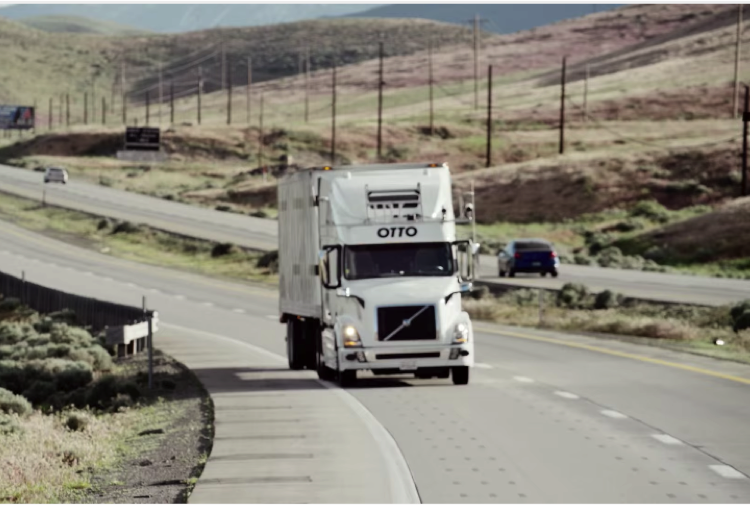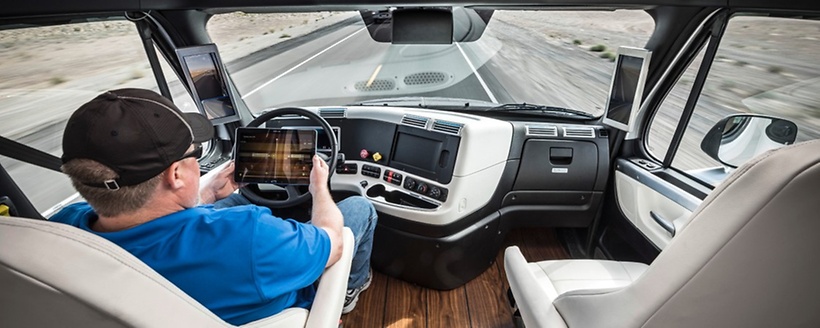September 6, 2017 – 11:00 p.m.
Earlier today, the House passed the SELF DRIVE Act – a bill that zoomed through the legislative process in a few short months with bipartisan support (almost) completely throughout.
But on the other side of the Hill, the upper chamber continues to live up to its reputation of being – as President James Buchanan put it best – “the world’s greatest deliberative body.”
Senate Commerce Chairman John Thune (R-SD) has been leading the bipartisan effort on the Senate’s autonomous vehicle (AV) bill with Ranking Member Bill Nelson (D-FL) and Sen. Gary Peters (D-MI). Although the senators were bullish about introducing the bill before the August recess, the Senate left before it was publicly released.
As ETW reported in July, Senate staff invited stakeholders to view the bill and provide feedback throughout the summer. The objective throughout the process was to build consensus before the legislation was introduced – an endeavor that quickly became more complicated as states and localities mounted opposition to a provision that would preempt laws that would restrict AV operation in their jurisdictions.
But sources familiar with work on the legislation indicate that an even larger issue has emerged: the question of whether the bill should establish a framework for regulating the safe development of self-driving trucks.

Pictured: Self-Driving Truck by Otto (now owned by Uber)
As Bloomberg reported in late July, the Teamsters and other labor unions vehemently opposed the inclusion of self-driving trucks in any AV bills – citing a potential for autonomous trucks to cause a mass displacement of human drivers. After actively lobbying key Congressional leaders in both chambers, they succeeded in preventing references to autonomous trucks from being included in the House’s SELF DRIVE Act as well as earlier drafts of the Senate bill from as early as July.
However, sources report that Thune now intends to include trucking provisions in the Senate bill and is launching the Senate’s equivalent of a PR campaign – much to the consternation of his Democratic colleagues.
The implications for mass displacement of truck drivers, in the long term, are tremendous – the most common jobs in 29 states are driving jobs involving trucks, parcel delivery, and tractors. However, experts argue that the likelihood of large-scale displacement of human drivers is low in the short and medium-term for a few reasons:
- Driving a truck is a small part of the overall job (e.g., scheduling deliveries, maintaining the truck, keeping freight secure);
- The U.S. has a perpetual shortage of truckers, clocking in at about 48,000; and
- Autonomous driving technology has still not reached maturity – and it may be several years or even a couple of decades until AV systems are sophisticated enough for trucks (and even cars) to drive completely unsupervised.

Pictured: Daimler’s Freightliner Inspiration Truck
Nelson – who is preparing for what may be a tight campaign for reelection next year – has been adamant about excluding trucks from the bill due to concerns about worker displacement.
Meanwhile, Peters has landed somewhere between a rock and a hard place. While the first-term Michigan senator initially hoped to focus entirely on passenger vehicles and avoid a partisan battle, sources indicate that OEMs in his home state have pushed for him to support the inclusion of autonomous trucks in the bill.
One source indicates that pressure from Detroit is mounting: last week, Ford unveiled plans to produce self-driving commercial trucks – and GM is reportedly working on their own autonomous truck technology.
To bring the Democrats on Senate Commerce on board, Thune hopes to shift attention to the safety benefits that autonomous trucking could produce and emphasize the related economic opportunities — all in an effort to push back against the Teamsters’ assertion that AVs would trigger nearly-immediate mass displacement of workers in the driving profession.
For this reason, Thune just scheduled a hearing for September 13 that will discuss the benefits of autonomous truck safety technology as well as the potential impacts on jobs and the economy.
The hearing notice states, “Including or excluding trucks, buses, and other heavy duty vehicles has been a topic of discussion in ongoing bipartisan efforts to draft self-driving vehicle legislation.” The cited hyperlink leads to the set of principles declared by Thune, Nelson, and Peters – including this:
Remain Tech Neutral: Self-driving vehicles are likely to take different forms, use diverse technologies, serve consumers with varying capability levels, and follow multiple business models.
Legislation must be technology neutral and avoid favoring the business models of some developers of self-driving vehicles over others.
In a written statement accompanying the hearing announcement, Thune states, “Self-driving technology for trucks and other large vehicles has emerged as a pivotal issue in Congress’ attempt to help usher in a new era of transportation… This hearing will offer all members of the Commerce Committee the opportunity to hear expert testimony on the future highway safety benefits of applying automated technology to trucks as well as perspectives on excluding trucks from legislation affecting passenger cars.”
The committee has called on the following witnesses to testify:
- Colonel Scott G. Hernandez, Chief, Colorado State Patrol
- Mr. Troy Clarke, Chief Executive Officer, Navistar
- Ms. Deborah Hersman, President and Chief Executive Officer, National Safety Council
- Mr. Chris Spear, President and Chief Executive Officer, the American Trucking Associations
Stay tuned for further details in ETW as the issue develops.




